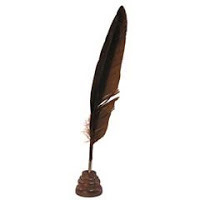Writing the short story

Writing the short story. How do you do it?
Got a theory/idea on what constitutes a great short story?
Yes . . . and no, baby. I do and I don't. For the last 18 months I've been writing a lot of short stories. Playing with them. Slicing and dicing and trying to come up with a form that moves with a smooth flow; like drinking the first glass of Coke Cola of the day (my preferred drink). Kinda goes down the throat with a hot kick and a squirming growl--but tastes soooooooooo good doing it!
What I've come up with is this. First, I like innuendo in telling a story instead of throwing a brick through a store front window. What you imply in the story is as important as saying something. Critically so--since it gives the reader the luxury of allowing his imagination to build all kinds of mental images and implications around the main story.
Secondly, Raymond Chandler had it right: brevity in dialogue. Short, vicious body punches straight to the gut when it comes to dialogue. Crisp, tight dialogue--and not too much of it--is the icing on the cake. It offers the best vehicle for you to spring that surpise ending. Or tug the emotional strings of the heart in a profound way.
Thirdly--and possibly controversially--leave a few holes in the plot. Yes, the plot has to make sense. If the plot isn't laid down into a believable carpet, everything else falls to pieces. But it's not important to explain every detail. Again, it goes back to the Number One thingee--the implications. Half the joy for a reader, I think, is figuring out how the crime/hit/love note/whatever . . . was actually done/created.
Fourthly--one sentence descriptions. Vivid descriptions to describe scene settings, people, actions. In one sentence (not one sentence for all! One sentence for each item). Absolutely, absolutely, absolutely critical.
There. That's it. The Perfect Short Story!!
Or is it?
You tell me.
Published on May 02, 2011 08:56
No comments have been added yet.



